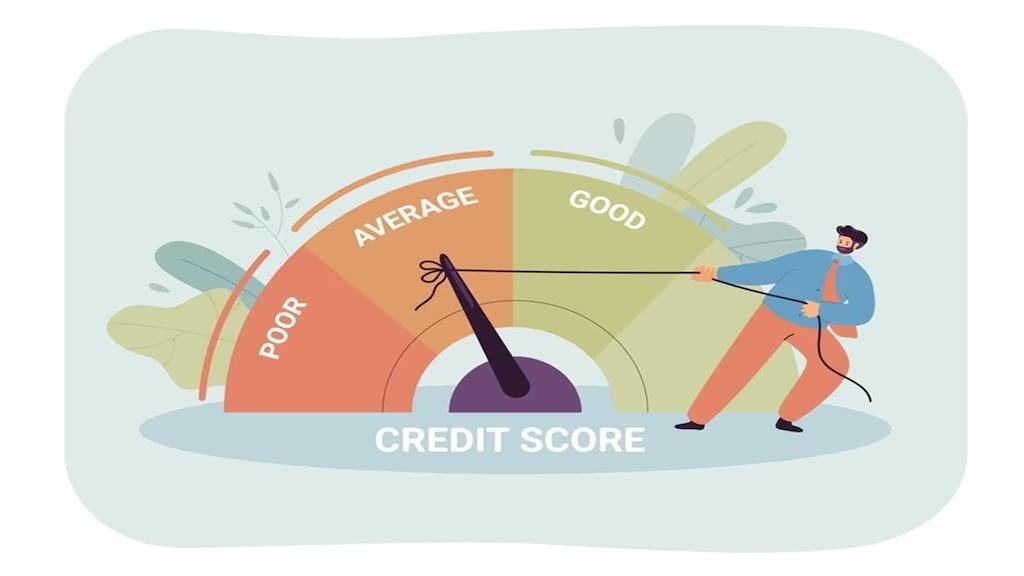
How can a person’s CIBIL score cost them a banking job?
The recent budget session of Parliament saw Union Minister Pankaj Chaudhary share some interesting insights about the importance of a good credit score. He revealed that in the fiscal year 2023-24, the Institute of Banking Personnel Selection (IBPS) required candidates applying for the Common Recruitment Process (CRP-XIII) of Nationalised Banks to have a healthy credit history and a minimum CIBIL score of 650. This revelation has sent shockwaves among job aspirants, who are now realizing that a low CIBIL score can not only affect their loan eligibility but also hinder their chances of landing a job in the banking sector.
But why is a good CIBIL score so crucial for banking job aspirants? And what exactly is a healthy credit history? To understand this, let’s delve deeper into the world of credit scores and how they impact our lives.
What is a CIBIL score?
The Credit Information Bureau (India) Limited, commonly known as CIBIL, is a credit reporting agency that maintains a record of an individual’s or business’s credit history. This record is used to calculate their credit score, which is a three-digit number ranging from 300 to 900. A higher score indicates a good credit history, while a lower score suggests a poor credit history.
How is a CIBIL score calculated?
CIBIL scores are calculated based on an individual’s credit history, which includes information about their credit accounts, loan payments, credit inquiries, and other credit-related activities. The scoring system takes into account various factors, such as:
- Payment history: Timely payments, late payments, and missed payments all impact the score.
- Credit utilization: The amount of credit used in relation to the credit limit available.
- Length of credit history: A longer credit history is generally viewed as positive.
- Credit mix: A diverse mix of credit types, such as credit cards, loans, and mortgages, can positively impact the score.
- New credit: Frequent credit inquiries and new credit accounts can negatively impact the score.
Why is a good CIBIL score important for banking job aspirants?
A good CIBIL score is crucial for banking job aspirants because it reflects their financial discipline and responsibility. Banks and financial institutions view a good credit score as a sign of reliability and trustworthiness. In the context of job aspirants, a good CIBIL score can demonstrate their ability to manage finances effectively, which is a valuable asset for any organization.
The IBPS’s requirement of a minimum CIBIL score of 650 for banking job aspirants is a clear indication of the importance of credit scores in the recruitment process. With the increasing competition in the job market, a low CIBIL score can be a major hurdle for job aspirants, making it challenging for them to secure a job in the banking sector.
Consequences of a low CIBIL score for banking job aspirants
A low CIBIL score can have serious consequences for banking job aspirants, including:
- Rejection: A low CIBIL score can lead to rejection from the job application process.
- Delayed joining: Even if selected, a low CIBIL score may result in a delayed joining, as the employer may require the candidate to rectify their credit issues before joining.
- Reduced salary: In some cases, a low CIBIL score may lead to a reduced salary package, as the employer may view the candidate as a higher risk.
- Limited career growth: A low CIBIL score can limit career growth opportunities, as employers may be hesitant to promote candidates with poor credit history.
How can banking job aspirants improve their CIBIL score?
Fortunately, there are steps that banking job aspirants can take to improve their CIBIL score:
- Check your credit report: Obtain a copy of your credit report and review it for errors or inaccuracies.
- Pay your bills on time: Make timely payments to avoid late fees and penalties.
- Reduce debt: Gradually reduce your debt burden by paying off high-interest loans and credit cards.
- Avoid new debt: Avoid taking on new debt, such as credit cards or personal loans, until your credit score improves.
- Build a credit mix: Consider opening a new credit account, such as a credit card or loan, to diversify your credit mix.
- Monitor your credit utilization: Keep your credit utilization ratio below 30% to avoid negatively impacting your score.
Conclusion
In conclusion, a low CIBIL score can have serious consequences for banking job aspirants, including rejection, delayed joining, reduced salary, and limited career growth. As the IBPS’s requirement of a minimum CIBIL score of 650 demonstrates, a good credit score is crucial for job aspirants in the banking sector. By understanding how CIBIL scores are calculated and taking steps to improve their score, banking job aspirants can increase their chances of securing a job in the banking sector.
Source:






